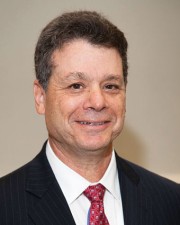
Indemnification is an agreement between two parties for one party to assume liability in the event of a loss (simply put shifting risk from one party to the other). Professional engineering service firms (consultants) are often requested to execute contracts that include defense and indemnification provisions that result in the consultant assuming some of the client’s legal liabilities and thereby act as an insurer for the client. Unlike contractors, design professionals do not take over or exercise constructive control over a jobsite and therefore should not be required to indemnify or pay a client’s legal defense costs in the absence of their own negligence. The defense and indemnity clauses in many professional engineering contracts with public owners for in New York expose consulting firms to liabilities which are outside the control of the consultant and cannot be covered by insurance. If a consultant signs an agreement where their indemnification obligation is not limited to the consultant’s negligence, they are accepting liability beyond that required by law and beyond that for which they are insured.
Professional liability insurance covers consultants against injuries and damages resulting from their negligent professional acts, errors or omissions. To prove negligence, a claimant must establish a professional standard of care, establish the consultants’ duty to adhere to that standard of care and establish their failure to do so - and then prove that this failure proximately resulted in injury or damage to the claimant.
Unfortunately, many defense and indemnity clauses require firms to assume risks that go beyond the consultant’s negligent errors and omissions and shift liability to the consultant for all acts, regardless of whether or not there was any negligence by the consultant. Some defense and indemnity clauses require consultants to be liable for negligent acts of the locality or agency and its employees, as well as other consultants or contractors. Similarly, certain clauses go so far as to require the consultant to assume the cost of defending against acts that are only alleged and unproven. Some of these clauses even require the consultant to pay the owner’s defense costs from the moment a suit is filed or a claim has been made, even if it is ultimately determined that the consultant was not negligent in their services. Unfortunately, these legal costs are then borne by the consultant, since they are not paid for under their professional liability insurance policy. Defense and indemnity clauses that go beyond what a consultant can be insured for do not provide the public with any meaningful protection, since consulting firms do not maintain any assets sufficient to meet the cost of any but the smallest judgments. These costs increase the overhead of firms, thereby needlessly increasing the fees charged for their services, and put many firms in a position of losing their businesses if an uninsurable claim results in a judgment and/or defense costs that are beyond their ability to pay.
Legislation introduced in the Assembly and Senate – A.8293 (Morelle)/S.6622(Ranzenhofer) – protects professional design firms by ensuring that their defense and indemnification obligations extend only to acts for which they are liable. The bill provides that, in contracts for public works, design professionals (engineers, architects and surveyors) may be required to defend and provide indemnification for damages caused by or are the result of their own negligence, recklessness, or willful misconduct, but not for damages that are the responsibility of other parties. It also stipulates that contract provisions that attempt to expand the defense and indemnification obligations of such design professionals to include damages caused by other parties are void and contrary to public policy.
Unreasonable and uninsurable indemnity clauses in contracts are harmful to every party involved. This liability not only puts businesses at risk of failing but it will ultimately impede individuals who are harmed from receiving just compensation. ACEC New York urges New York to reform the way these clauses are worded.
Jay Simson, CAE, is the president of ACEC New York, Albany, N.Y.
